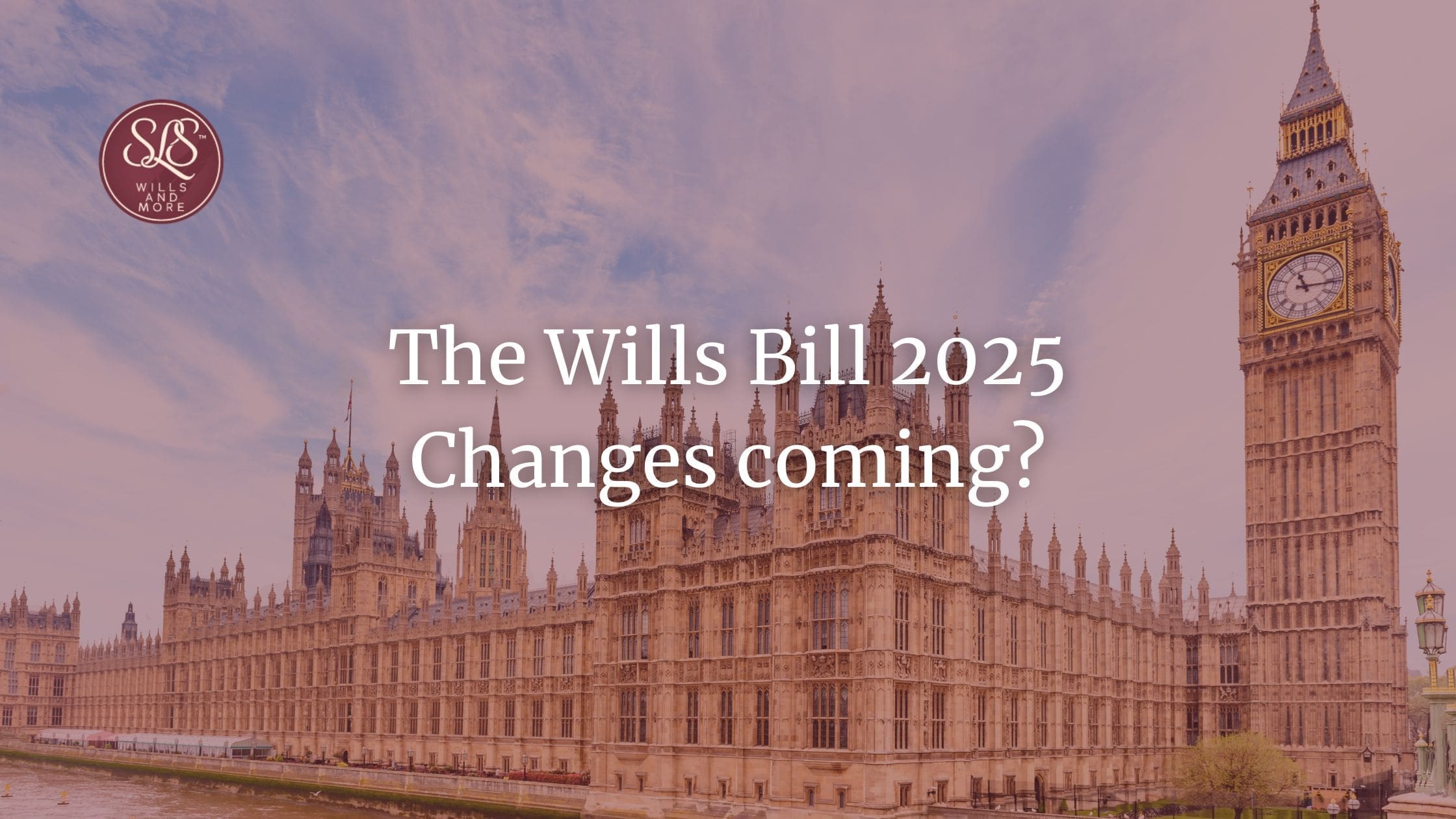The Wills Bill 2025, proposed by the Law Commission, is set to bring about the most significant reform to wills legislation in England and Wales since the Wills Act 1837. The aim is to modernise and simplify the will-making process so it better reflects contemporary society and digital advancements. For anyone thinking about creating or updating a will, this proposed legislation is worth understanding.
Key Changes Proposed by the Wills Bill 2025
1. Recognition of Electronic Wills
One of the most notable changes is the proposed legal acceptance of electronic wills. This would allow individuals to draft, sign, and store their wills digitally, offering a more flexible and accessible approach. However, strict requirements will still apply to ensure these wills are authentic and secure.
2. Marriage No Longer Revokes a Will
Currently, getting married or entering a civil partnership automatically revokes any existing Will unless it was clearly made in contemplation of that marriage. The new Bill seeks to remove this rule to avoid situations where people unintentionally die without a valid Will, which can lead to unintended consequences for their estate. However, when contemplating marriage, Wills should still be reviewed to ensure that reasonable financial provision is being made to avoid future challenge. Legal advice should be sought and we’re happy to support.
3. Lowering the Minimum Age to Make a Will
The Bill proposes reducing the legal age to make a valid will from 18 to 16. This change recognises the ability of younger people to make important legal decisions and aligns with other areas of law where 16-year-olds can act independently.
4. Allowing Courts to Approve Informal Wills
Under the current law, a will that does not meet specific formal requirements is not legally valid, even if the testator’s wishes are clear. The proposed reforms would give courts the authority to validate informal wills when there is convincing evidence of the individual’s intentions.
5. Updating the Test for Testamentary Capacity
The Bill recommends aligning the test for testamentary capacity with the Mental Capacity Act 2005. This would replace the historic Banks v Goodfellow test and provide a more modern and consistent way of assessing whether someone has the capacity to make a will.
6. Improving Protection Against Undue Influence
At present, it is very difficult to challenge a will on the grounds of undue influence. The new proposals would allow courts to infer undue influence where there is reasonable evidence, making it easier to protect vulnerable people from coercion or manipulation.
What This Means for You
If You Are Making a Will for the First Time
These changes are designed to make the process more accessible, particularly for younger individuals and those who may prefer digital options. The added flexibility, alongside court safeguards, aims to ensure that genuine testamentary wishes are respected, even if formalities are not perfectly followed.
If You Already Have a Will in Place
Your existing will remains valid under the current laws, and there is no need to rewrite it because of these proposals. However, it is always wise to review your will regularly, especially after major life events such as marriage, divorce, or the birth of children. A good rule of thumb is to review your will every three to five years to ensure it still reflects your wishes.
A Step Towards Modern, Accessible Will-Making
The Wills Bill 2025 reflects a long-overdue update to legislation that dates back nearly two centuries. By embracing digital documentation, recognising modern family structures, and offering clearer legal standards, the proposed reforms are a step towards a more accessible and inclusive will-making process.
At SLS Wills and More, we are closely monitoring the progress of this Bill and will continue to advise our clients in line with current law. If you have any questions about making or updating a will, we are here to help.
For trusted advice and support, contact us today







